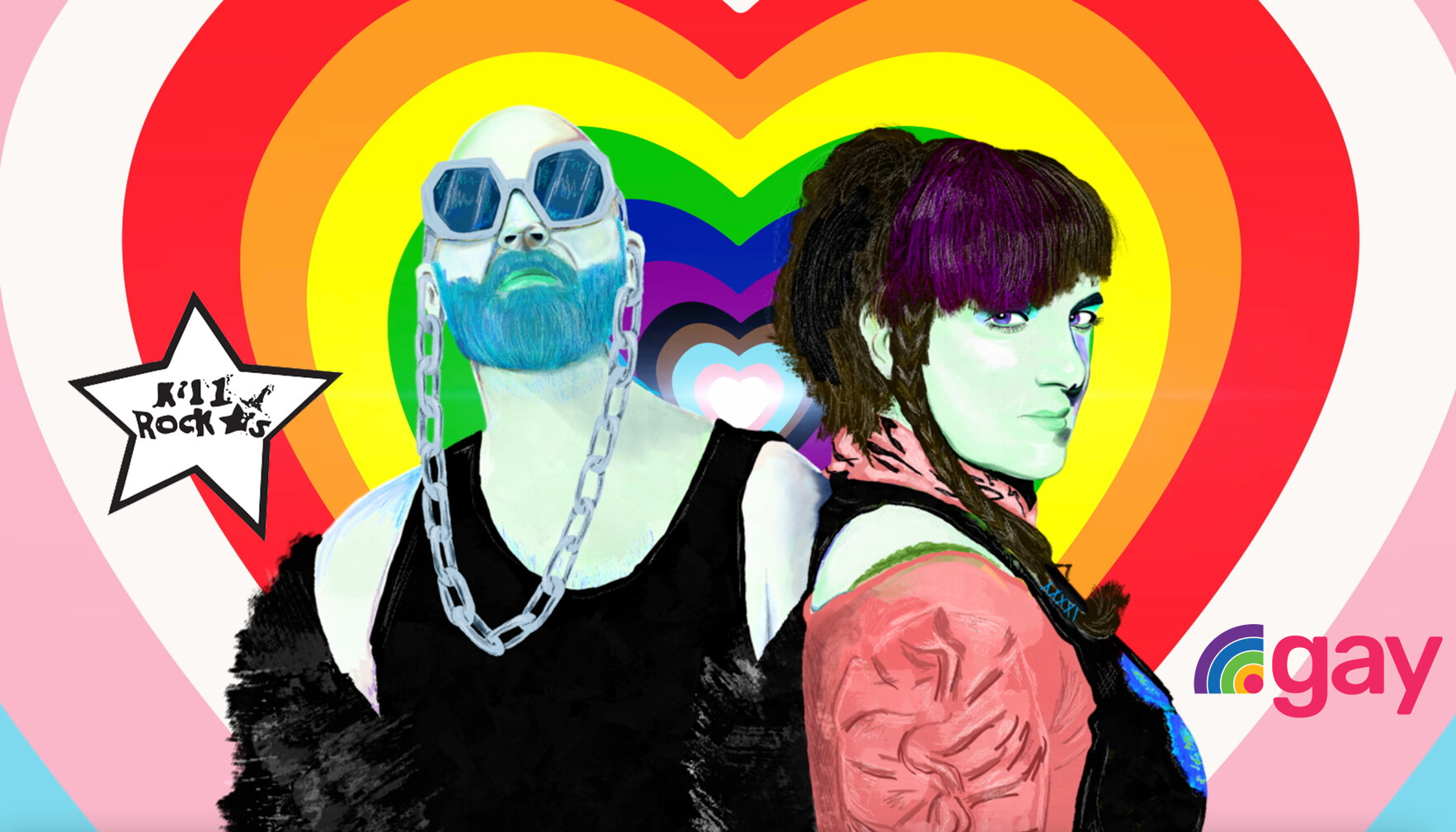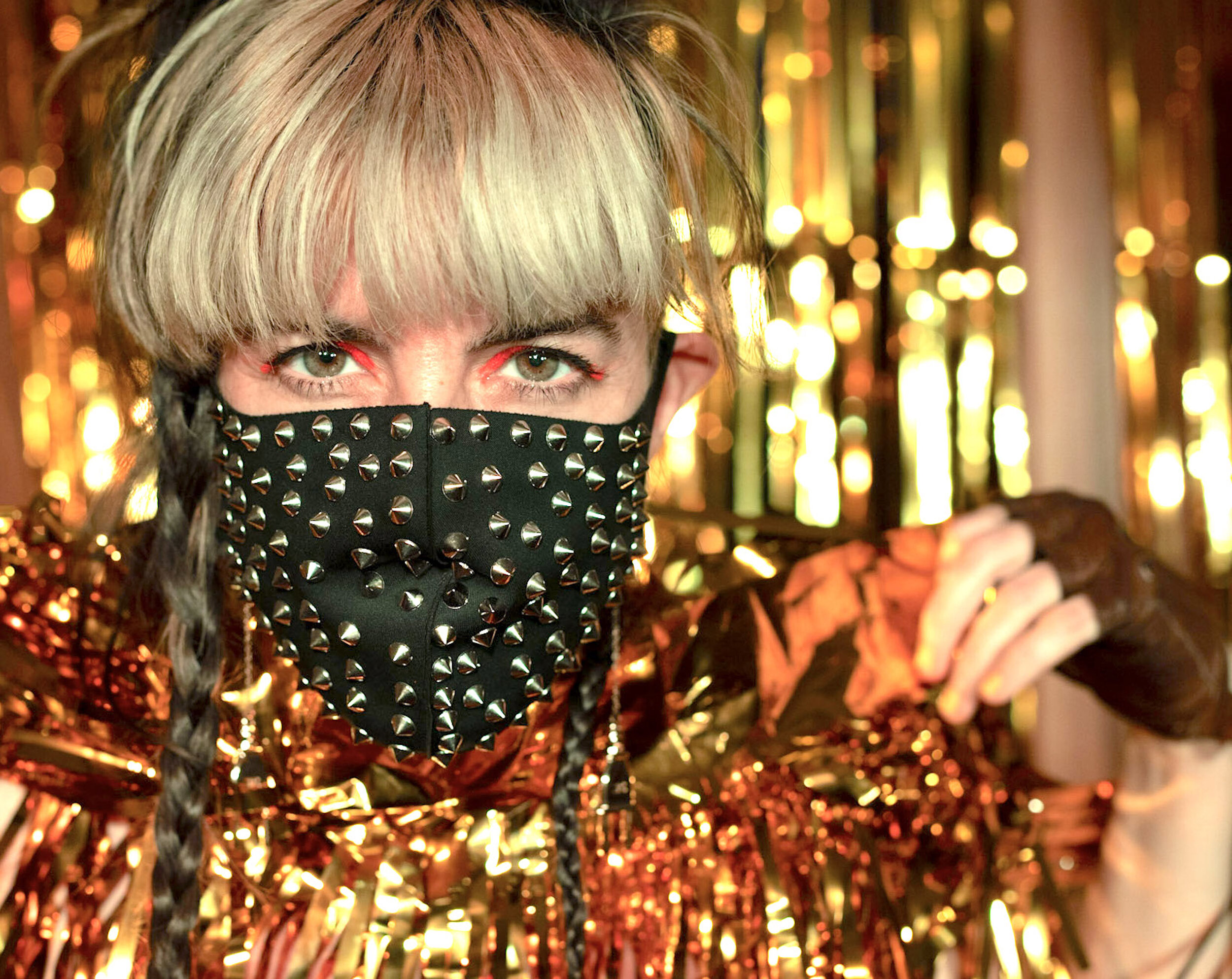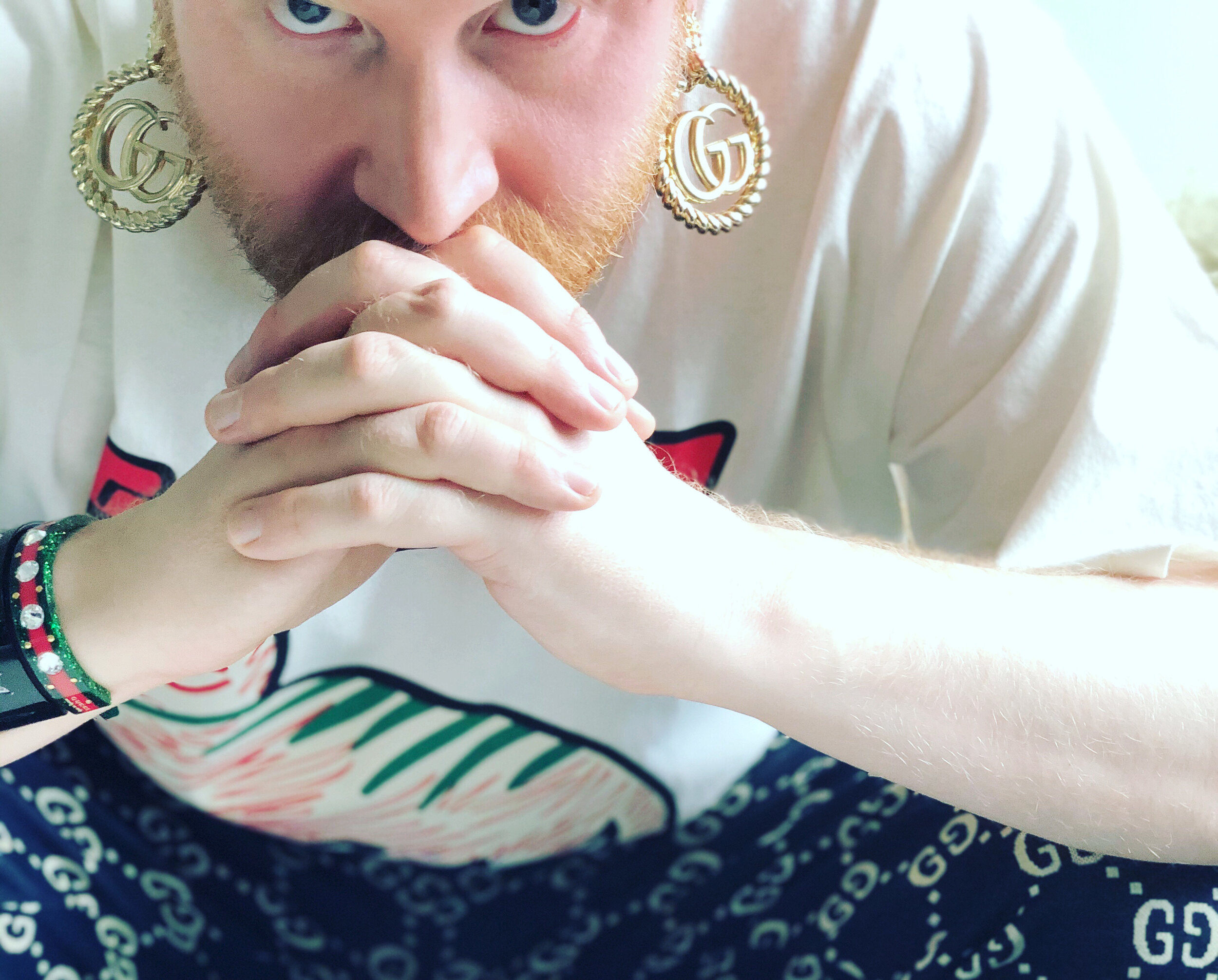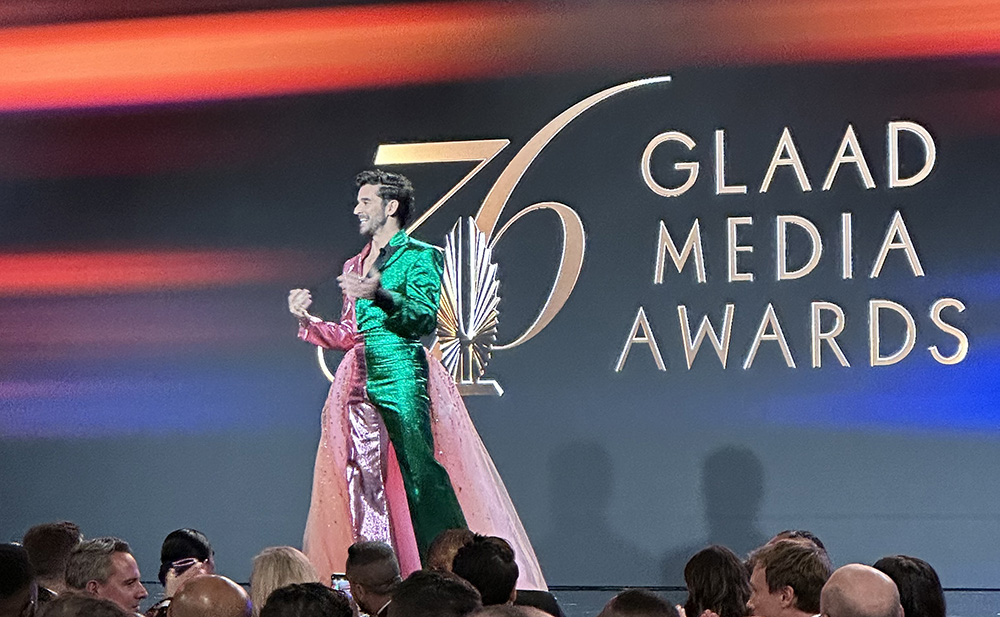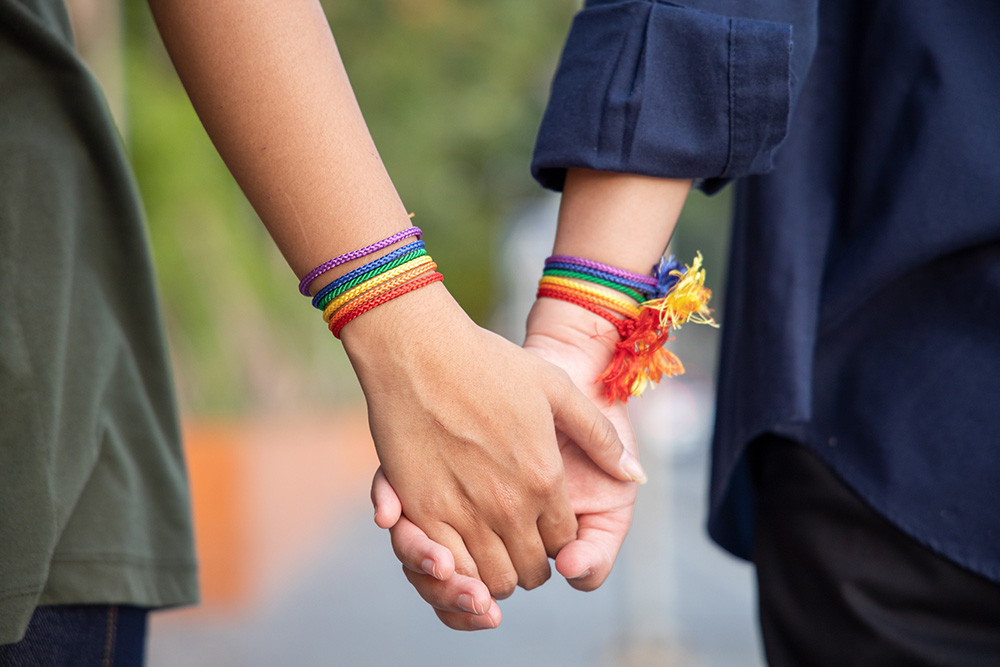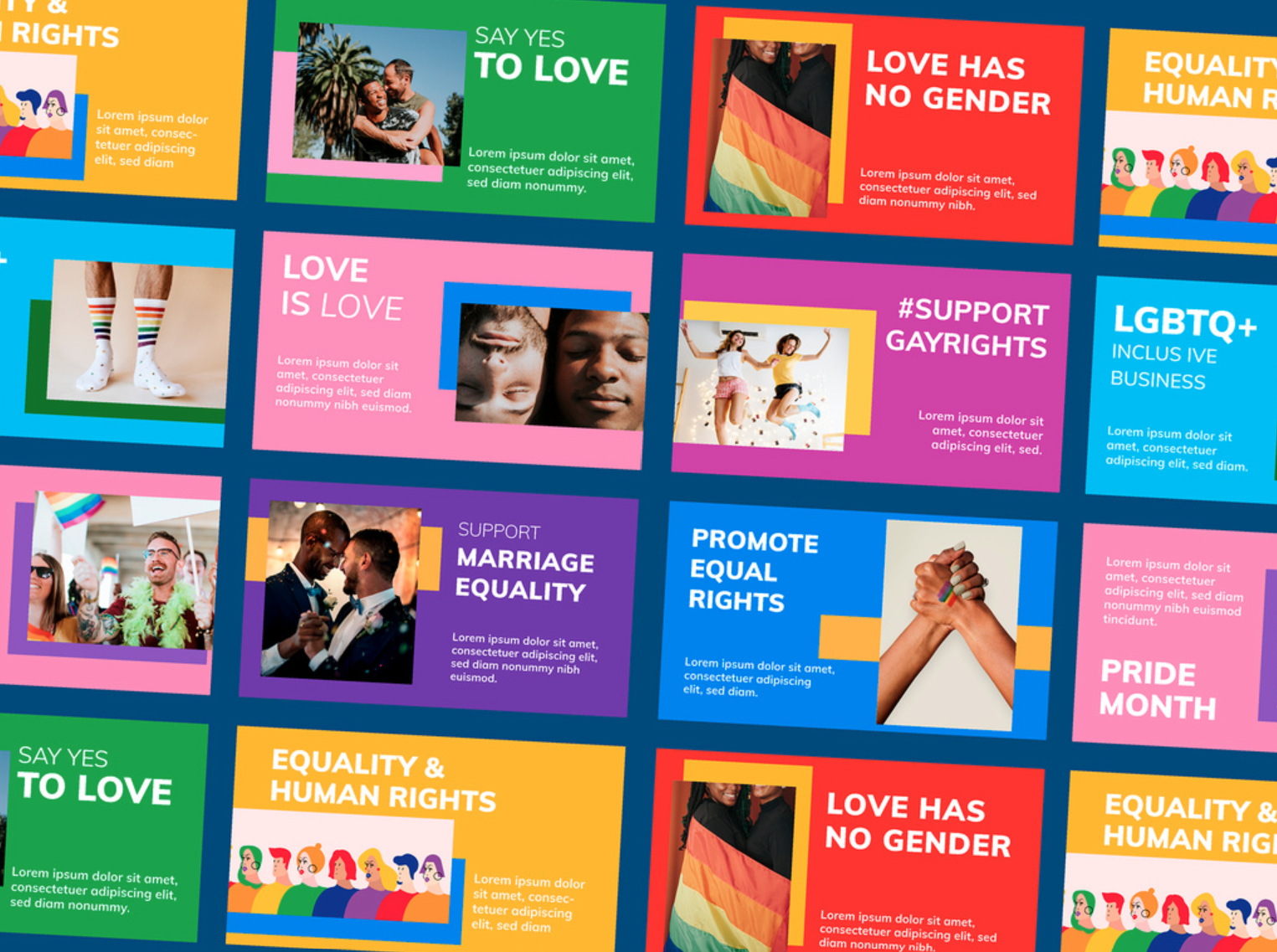What has your experience of being an out artist in the music industry been like?
Bitch: For the most part, I have felt incredibly supported for being out. I built my career playing one show at a time, and had the support of more established artists saying, "We love your wildness, come along." I never expected support from the big labels and never tried to go that route. I sang from my heart and it resonated with other queers and allies.
Logan Lynn: Honestly, it has not always been great for me. I think that is because people were always trying to make some weird mainstream thing happen, and I was a little early to be so completely unhinged and queer and have mainstream anything still be on the table. It was the 90s, I had just moved to Portland from the Midwest, and it was a really different time in the world. Also, I was on bad drugs back then, and people had never really heard somebody make the type of insane crybaby techno music I was making when I was a teenager just coming up. At a certain point that all changed — namely, when Logo TV came out — and suddenly being a gay musician was the reason why I was having my gay videos played on national television and started hearing my gay songs on the radio. All in all, I’m grateful for how it has worked out... but my experience of being a young, out artist in 1998 was very different than what young, out artists are experiencing now. I’m glad everybody isn’t having to fight quite as hard these days just to be heard and have a shot, but the industry still has a long way to go before we can really say it broadly celebrates and lifts up LGBTQ musicians and songwriters. We just aren’t there yet.
How has being signed to such an explicitly queer label influenced that experience?
LL: Well, I was just signed to the queer label of my dreams this past year and it’s so rad. I’ve been out here in these streets for decades and certainly have been signed to other labels in the past — some large, some small — but never with a team of people who really understood what I’m about and actually knew what to do with that. It’s been really cool to be seen and be able to trust that my work, my name, my gay ass, is safe. Feels great to have found a home at Kill Rock Stars where my songs — and who I am — are celebrated. I still kinda can’t believe it!
B: There is nothing better as an independent artist to have someone come to you and say "Hey, we like what you're doing and we want to join you in getting your message out there." Kill Rock Stars has always been such a supporter of queer artists, long before there were corporate Pride campaigns. To feel celebrated in any way in this world is a win, and having them sign me in this moment of my career was like a whisper from the Goddess that I am on the right creative path!
Have you experienced any changes in how out artists are recognized and included over the course of your career? If so, what has that been like?
B: Oh, absolutely. In the late ‘90s when I first started touring, it was not even an option to think that there could be politically wild queers on TV or in mainstream media in any way. I never thought I would be accepted or allowed anywhere but the fringes. Luckily, people like Ani (Difranco) scooped us up and shared the fringes that she had built — but it was an act of rebellion. Our spaces were always “the other.” Now, it feels like people are getting more conscious of inclusion. And in some cheesy way like capitalism always does, it has tested the market and realized, “Oh, people want to see queer people and gender non-conforming people. Their stories are interesting." We have known that all along, and they are just catching up!
LL: Yes, for sure. There were so many homophobic gatekeepers working A&R at labels and covering music in the media when I was just getting started. The internet and social media really changed the whole game — in some ways terribly, but in a lot of ways, it opened up opportunities that didn’t exist before and kinda leveled the playing field. Record executives and labels have finally started seeing what Kill Rock Stars has always believed and practiced: that LGBTQ artists matter and we deserve a chance to create and be ourselves alongside our non-LGBTQ peers.
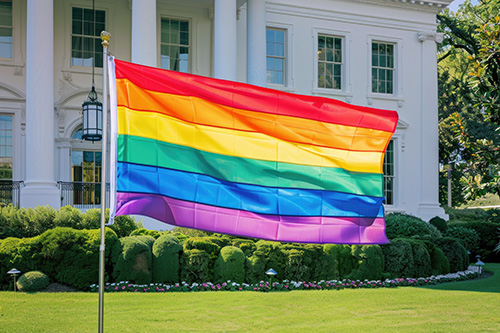
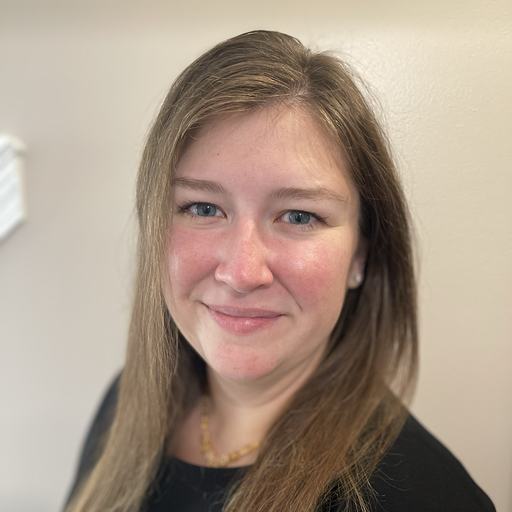 Elizabeth Achanta
Elizabeth Achanta

